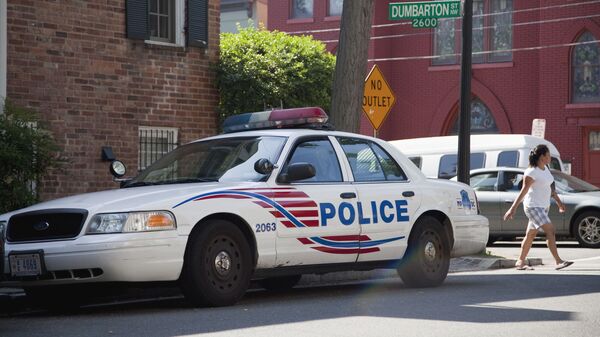The Washington, DC, Neighborhood Engagement Achieves Results (NEAR) Act was passed in March 2016 as a way to combat a recent increase in homicides in the area. In addition to the creation of the Office of Neighborhood Safety and Engagement and the Office of Violence Prevention and Health Equity, the NEAR Act called for new surveys and data to be collected from the Metropolitan Police Department to address and assess trends.
Despite the passage of the NEAR Act, it has taken the Metropolitan Police Department more than three years to release what it calls an accurate “Stop Data Report,” which claims that a total of 11,600 police stops were conducted between July 22 and August 18 of this year.
Back in February, however, DC Police Chief Peter Newsham had a much different number to report to the city’s Committee on the Judiciary and Public Safety.
"There was a one-year study on the number of stop-and-frisk reports that were done by the Metropolitan Police Department," Newsham testified, according to WUSA 9. "And my recollection at the time of reviewing that report - and this is over a one-year period - is that there were about 1,000 stop-and-frisk reports that were done.”
Valerie Wexler, policy analyst with Stop Police Terror Project DC, joined Radio Sputnik’s By Any Means Necessary on Friday to unpack the recent data and explain what her organization is doing to combat these policies that many deem “inherently racist.”
“The distinction between constitutional and unconstitutional stop-and-frisk is basically nothing,” Wexler contended to hosts Eugene Puryear and Sean Blackmon.
The reason, she explained, is due to “reasonable suspicion,” which was brought up in the 1968 Terry v. Ohio Supreme Court case involving a black man who was arrested and charged with illegally carrying a concealed weapon following a stop-and-frisk administered by a police officer. Terry’s defense argued that the officer had violated the Fourth Amendment by performing an unreasonable search and seizure.
However, on June 10, 1968, the landmark Supreme Court decision said that officers did not violate the amendment and went on to say that “reasonable suspicion” is enough to justify an officer’s search. The stops were even nicknamed “Terry stops” after the case.
While some argued that the policy was put into place for the protection of both the community and officers, Wexler brought up 2016 Howard University research by Josephine Ross that found that stop-and-frisk policies actually result in trauma and other “numerous harms, including the loss of trust between police and community.”
The Metro Police Department’s main argument still rests on the idea that its stop-and-frisk policy exists to remove illegal firearms from the DC streets, but less than 9% of stops led to weapons-related charges, and 10% of that number actually involved BB guns.
“This really confirms our position that we need to ban stop-and-frisk [and] stop-and-frisk is an inherently racist practice,” Wexler asserted. “That means that we need to really restrict the way that police are allowed to stop you, and frisk you and search you. Which means basically going back to having actual evidence to do that.”
She explained that Stop Police Terror Project DC is trying to show the public that policies such as stop-and-frisk are common around the country, despite their primary association with New York. In most cases, including in Washington, DC, the policy is just termed something different, such as “protective pat downs.”
Wexler encouraged those interested in making a change to reach out to city council members, attend Stop Police Terror Project DC events, sign the organization’s “No More Stop-And-Frisk” petition and just pay attention to the issue of these stops, no matter what they may be renamed.




